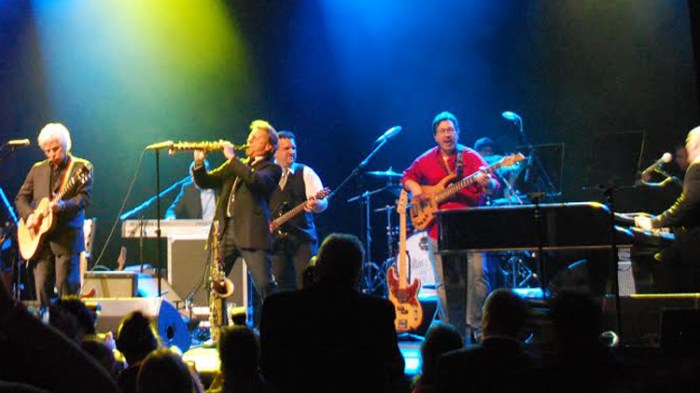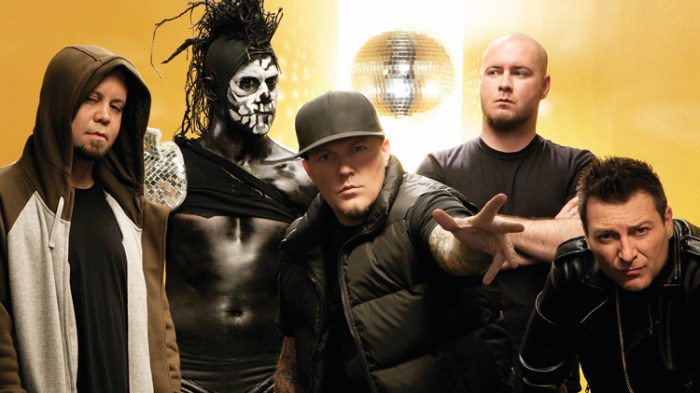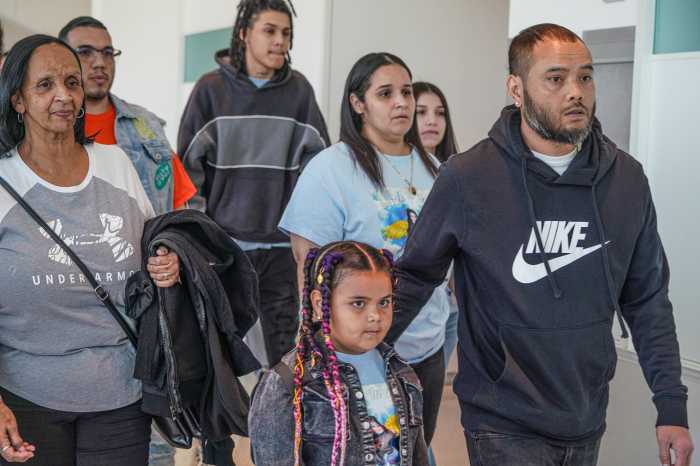Chazz Palminteri’s legendary one-man-show, A Bronx Tale, returns to The Paramount on June 11 for the 14th time.
Brilliant actor and distinguished playwright Chazz Palminteri, known for tough-guy roles, is still that kid from the Bronx who made his dream come true living by this pivotal message from his play:
“And I learned the saddest thing in life is wasted talent
And the choices that you make will shape your life forever.”
Palminteri made major choices to hold on to his dream. In 1989 his autobiographical coming-of-age play opened at Theatre West in Los Angeles and attained critical acclaim. Movie executives offered millions for the rights to his story, but his dream was to write the screenplay and star in the lead role as Sonny, the mobster. Robert De Niro teamed up with Palminteri as director and star, and in 1993 the hit movie was born. In 2007, Palminteri took his one-man show to Broadway. Next came the musical adaptation which enjoyed a run at Broadway’s Longacre Theatre, opening in 2016.
Along the way, Palminteri played iconic roles in movies, achieving an Academy Award nomination for Woody Allen’s Bullets Over Broadway, starring in The Usual Suspects, Oscar, Analyze This and adding his distinctive voice to numerous animated films, including Smokey in Stuart Little.
Anticipating his return to The Paramount, Palminteri shares lessons learned.
Chazz Palminteri’s A Bronx Tale Comes to the Paramount June 11
What was it like being directed by Robert DeNiro and having him play your father in your own screenplay? It was a lifetime dream and an amazing experience. Robert De Niro was so collaborative with me and everyone. He comes from the school of Martin Scorsese, Woody Allen and Francis Coppola; you listen to every word, every idea goes through you, then you take the best idea possible and do it. It takes just as much talent to recognize a great idea as it does to come up with it yourself.
What was your motivation for writing the original one-man show? Poverty! I was an actor in New York and Los Angeles. I got on [TV’s] Hill Street Blues, then Matlock and Dallas. I was trying to break into film and I couldn’t. I ran out of money, then I got fired when I was working as a doorman because I didn’t let [Irving Paul (“Swifty”)] Lazar into his own party. I decided if they aren’t going to give me a great part, I’m going to write one myself. I started writing, then performing it for my theater workshop. When I performed it, my world exploded!
You rejected offers for the film rights, holding out to write the screenplay and play Sonny. Wasn’t that a big risk? It went up to over a million and I said no. Then one night, the theater was standing room only. I got offstage and the stage manager said Robert DeNiro just saw the show. I walked into the dressing room and there was Bob. He said, “Oh, my God! That was amazing what you did! Look, we have to make a movie out of this.” I said, “I want to play Sonny and I want to write the screen play.” He said, “I’ll direct it and play your father. If you shake my hand that’s the way it will be. And I’ll make it right.”
Did you have experience before you wrote the libretto? No! I studied Howard Ashman, he was one of the great book writers who worked with Alan Menken. And then boom, I just got it! I had music by Allan Menken, eight-time Academy Award winner, and lyrics by Glenn Slater, three-time Tony Award nominee. I was blessed.
When you perform the play is it still new to you? Yes! I have performed it one thousand times in 34 years. The beauty is every time I do it, it feels like it’s the first time, because I’m not there when I do it. It’s like a bolt of lightning hits me. It’s like God just goes in me.
What important lesson did you learn from studying at The Actors Studio? You must get along with people, if you don’t, you’ll die. Some people hide all their gems. I don’t. I share them because the more you share the better life is. I learned all that matters is if you do the work great, good things will come.
Where do you enjoy performing your show the most? The Paramount. The owners are incredible! They do everything right!
You play 18 characters in your one-man show. Is that daunting? Yes, no one did it before or after. I had an idea of doing the whole movie onstage myself before it was the movie. And that’s why when they saw it, they went crazy.
What is your writing process? Before I give it to my manager and my agent, I write the first draft then send it to two other writers I work with. They make notes on it. I send that draft to my agent. When you write you can’t edit yourself if you’re afraid to offend people.
Why do you suppose the one-man show still draws crowds? People have seen the show 30 or 40 times. The characters that I wrote are archetypes. Everybody can relate to them. It catches the nerve and a voice in people. Alfred Hitchcock said there are only three things you can do with an audience and if you do two out of the three, you’ve got a hit. You can make them laugh, you can make them cry, or you could scare them. And I make them do all three.
What is next? On June 17 they’re showing a remastered version of the movie in the Beacon Theatre at the Tribeca Film Festival and Bob De Niro and I are going to do a Q&A with the audience. Additionally, I’m writing something brand new.
You have referenced poet Robert Frost’s quote, “Life goes on,” a response he made to journalist Ray Josephs’ question, “What do you think is the most important thing you’ve learned about life?” This journalist is asking you, “What do you think is the most important thing you’ve learned about life?” Life goes on. No matter how big you think you are, how famous, how much money you have, you will be gone. Never think you’re so big or wonderful or powerful because when you’re at that deathbed closing your eyes and you know it’s the end, are you going to have a smile on your face or a frown? Did I try to help other people? That’s all that matters.

































